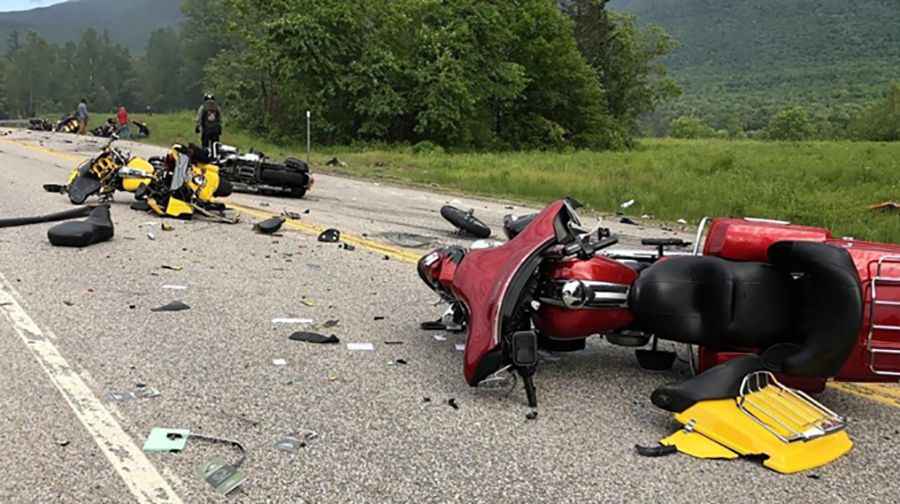Top 5 Reasons for Motorcycle Accidents in the USA According to Stats
In 2020, 5,579 motorcyclists lost their lives in crashes in the U.S. Well, that was an 11% increase from what was recorded in 2019. Furthermore, around 89,000 motorcycle accidents happen every year in the U.S.

Considering the number of registered motorcyclists, this means slightly more than 1% of them are involved in a motorcycle accident annually. That being said, motorcycle accidents are pretty common and nasty too. Therefore, to address this issue, we must first know about the common motorcycle accidents. Only with this information, we can take action to prevent future motorcycle accidents.
1. Dangerous Road Conditions
The fact that a motorcycle only has two wheels means it is less stable than a car or truck. As such, motorcyclists are likelier to be involved in an accident caused by dangerous road conditions compared to motorists. Slippery or rough road conditions can make a motorcyclist lose control and get into an accident.
Other factors that create dangerous road conditions are potholes, gravel, sand, grooved pavement, and other road hazards. To help reduce motorcycle accidents due to dangerous road conditions, the entities responsible for road maintenance are urged to warn riders early enough.
2. Defective/Faulty Motorcycle Parts
A defective/faulty motorcycle or a motorcycle with defective/faulty parts is also another cause of motorcycle accidents. A motorcyclist is likely to be involved in an accident when they are riding their bike at high speed, and then one of the defective bike’s parts becomes wrecked out of the blue. It is, for this reason, the manufacturers of motorcycles, as well as those producing replacement parts, are encouraged to make sure that defective motorcycle parts do not reach the market.
3. The Reckless Behavior of Drivers
According to 2018 Indiana Safety Facts, around 58% of motorcycle accidents were due to the fault of another motorist. Well, a good number of motorists simply do not care about the safety of other road users, which, in this case, are motorcyclists. This group of motorists tends to drive recklessly and aggressively around riders. And in so doing, they massively increase the chances of a rider getting involved in a deadly accident.
Although most drivers see these practices as common, they are far too dangerous, especially for motorcyclists. The practices in question are passing riders too close or too fast, tailgating, trying to pass in a single lane, and honking or shouting at a rider. Furthermore, some drivers will go overboard by throwing objects at riders.
4. Rear-end Collisions
Data from the NHTSA (National Highway Traffic Safety Administration) states that of the 5,421 fatal motorcycle crashes in the U.S. in 2018, roughly 7% were a result of rear-end collisions. The thing is, the stopping distance of most motorcycles is very much shorter than that of cars and trucks. This means that if a motorcyclist brakes suddenly in front of a car, then they risk being run into.
Rear-end collisions can also be due to motorcycles colliding with the rear of larger vehicles that stop suddenly without issuing a warning. This normally happens if the vehicle in front is blocking the rider’s view, thereby making it difficult to see the road ahead.
5. Sudden Lane Changes
Sudden lane changes also somewhat fall into the category of reckless driving without minding the safety of motorcyclists. Most drivers will change lanes without paying attention to the rider already occupying that lane. While attempting to do that, these drivers are likely to strike the motorcycle or run it off altogether.
In Summary
Also, it is worth noting that about 70% of motorcycle accidents occur at intersections. That is because motorists hardly see motorcyclists at intersections.
Most motorcycle accidents end in serious injuries or fatalities. That is why in the unfortunate event that you are involved in one, you need to seek the help of a motorcycle accident attorney. An experienced motorcycle accident lawyer will help you overcome unfair insurance practices and ensure you get the compensation you deserve.